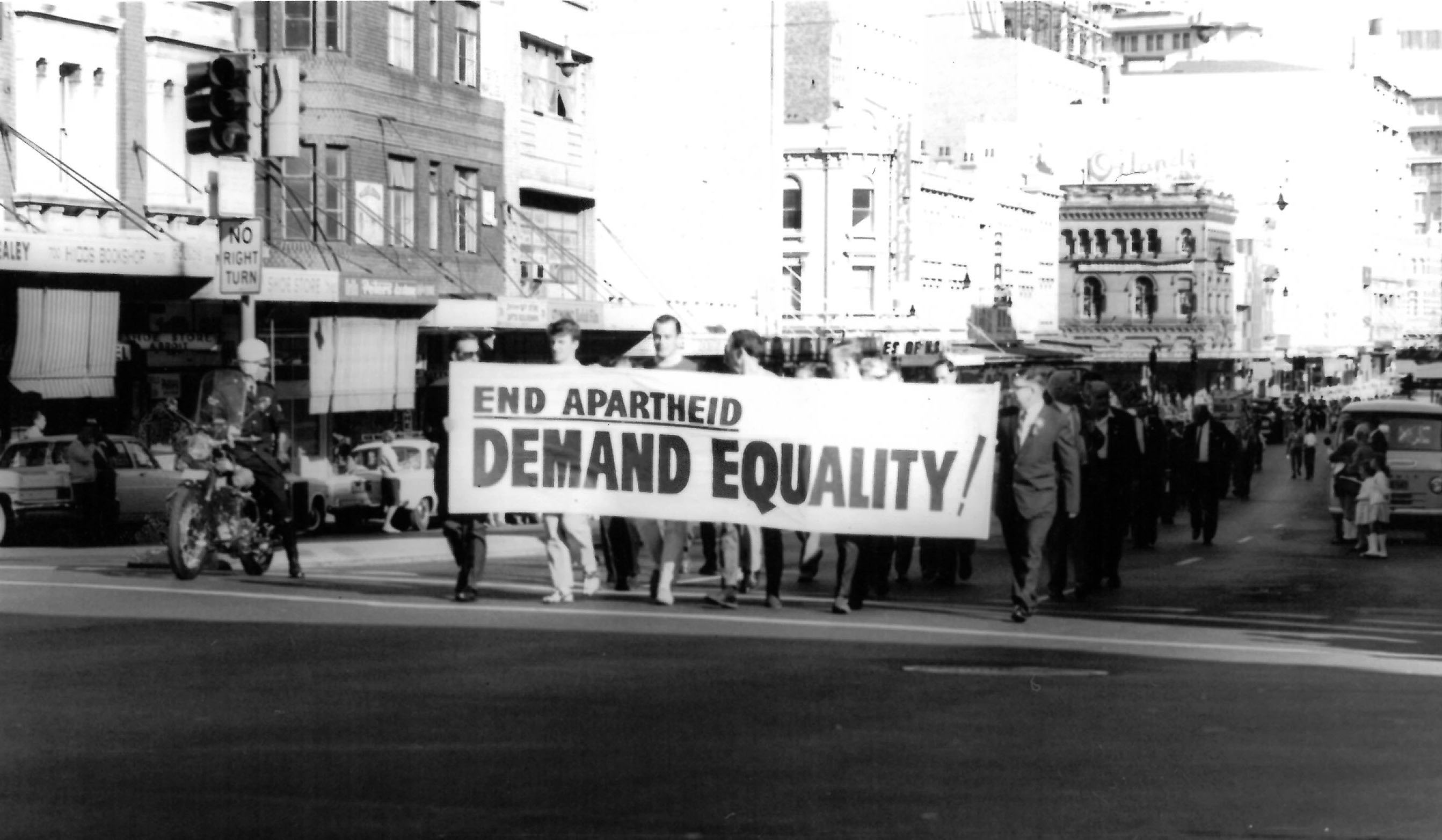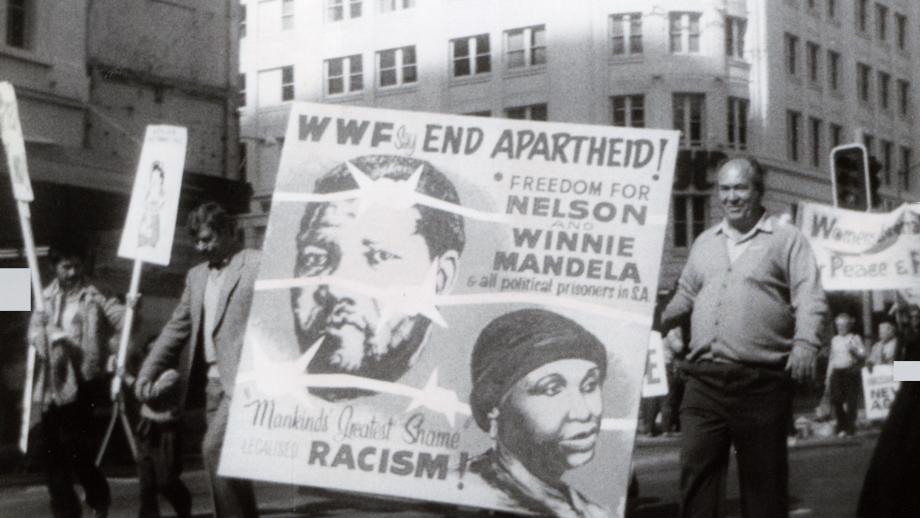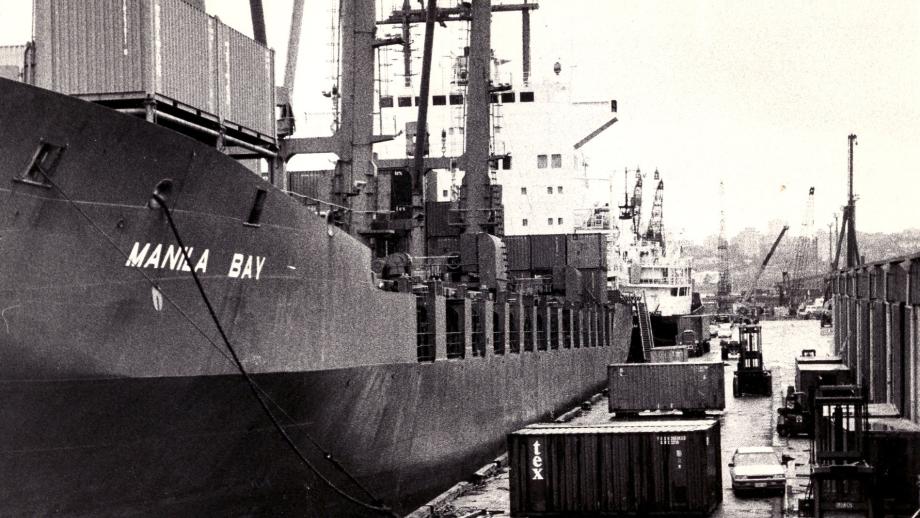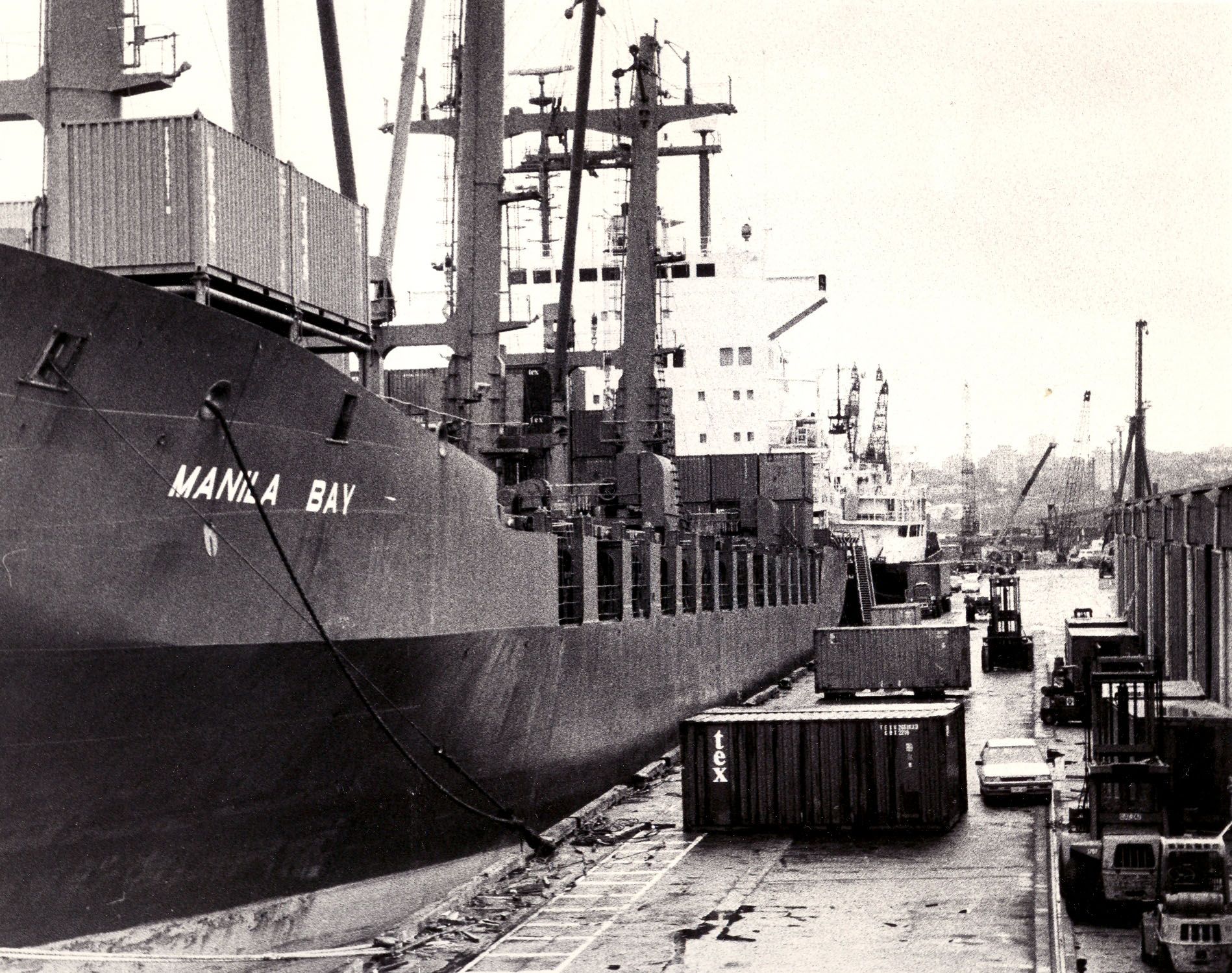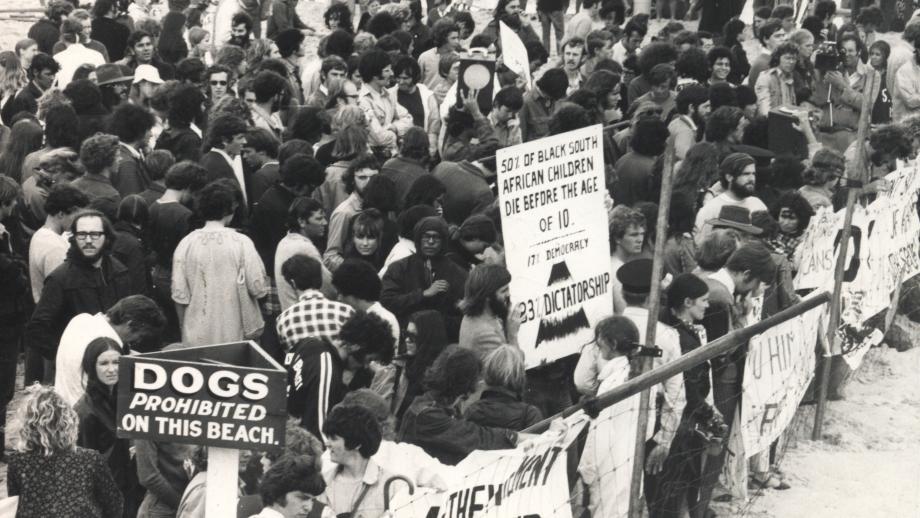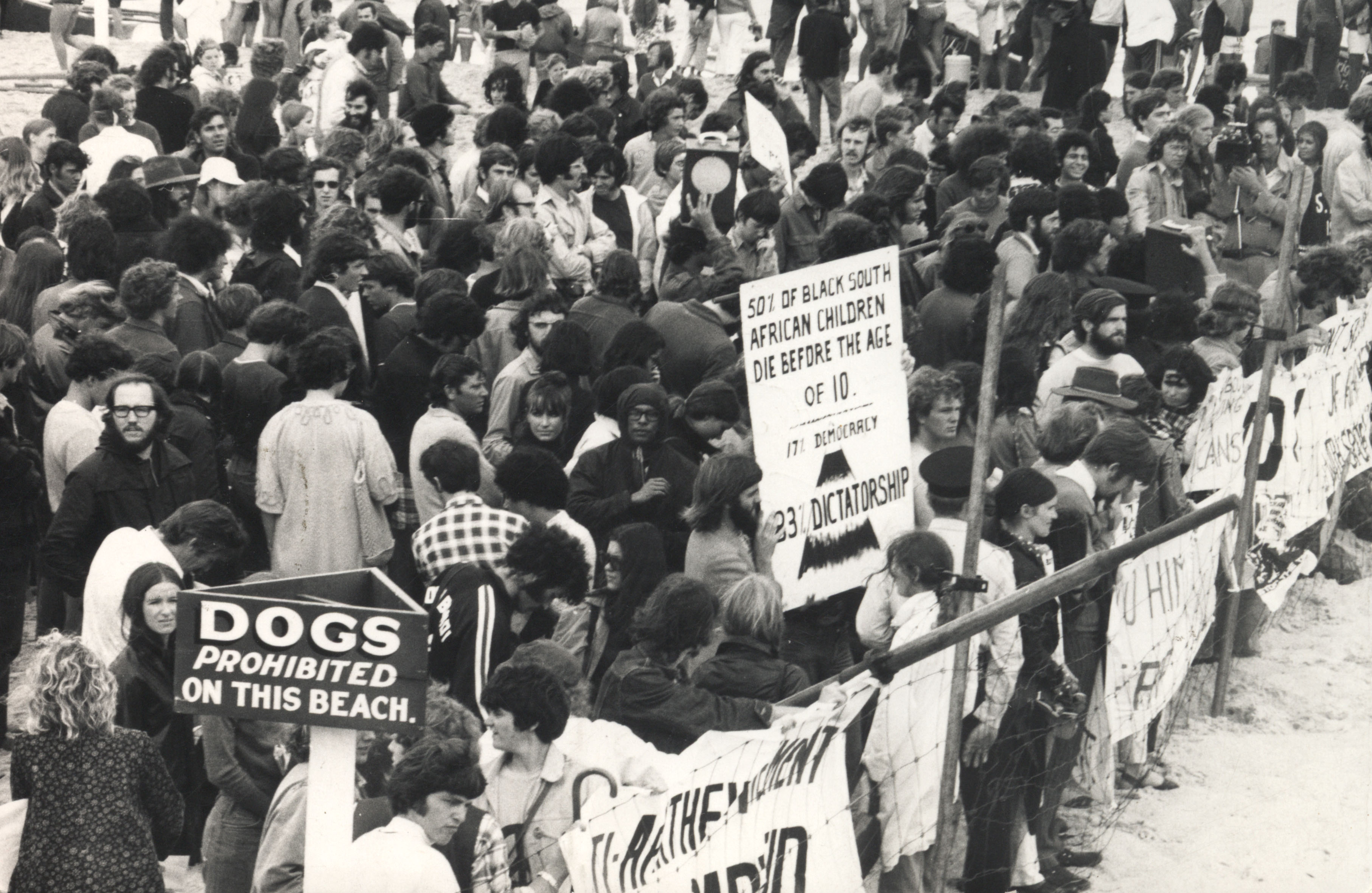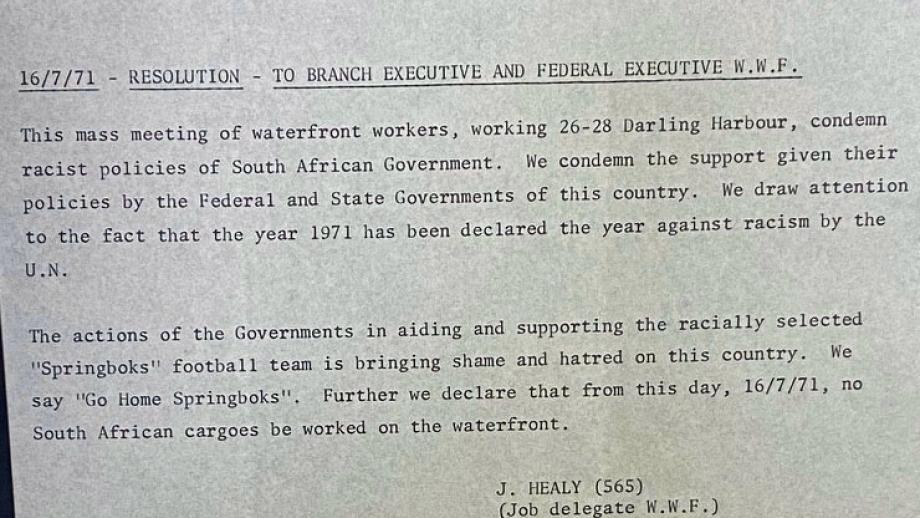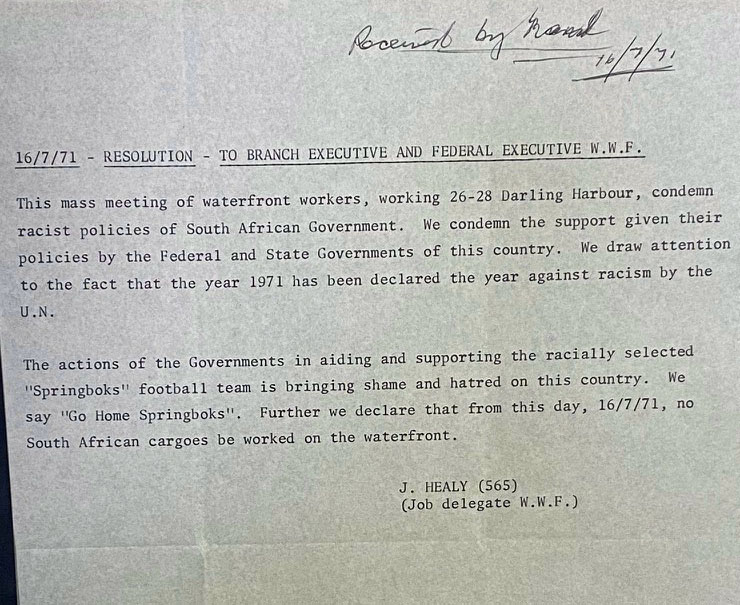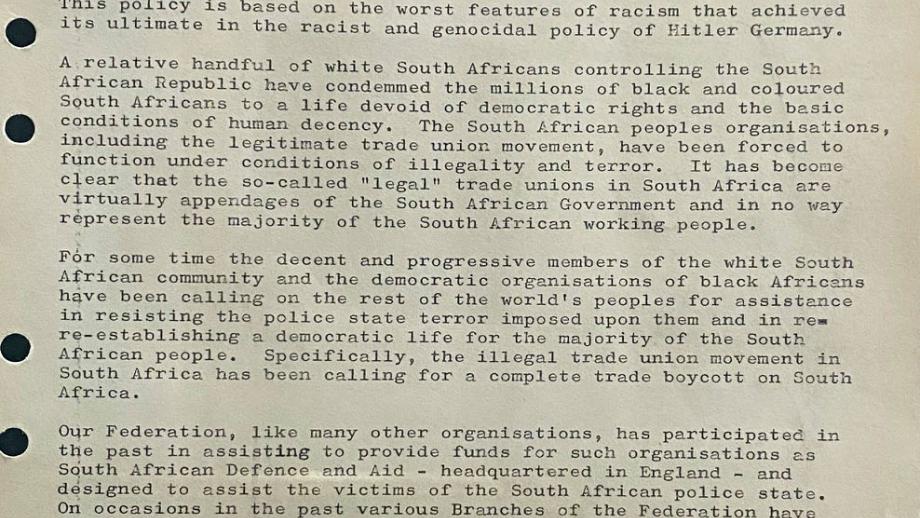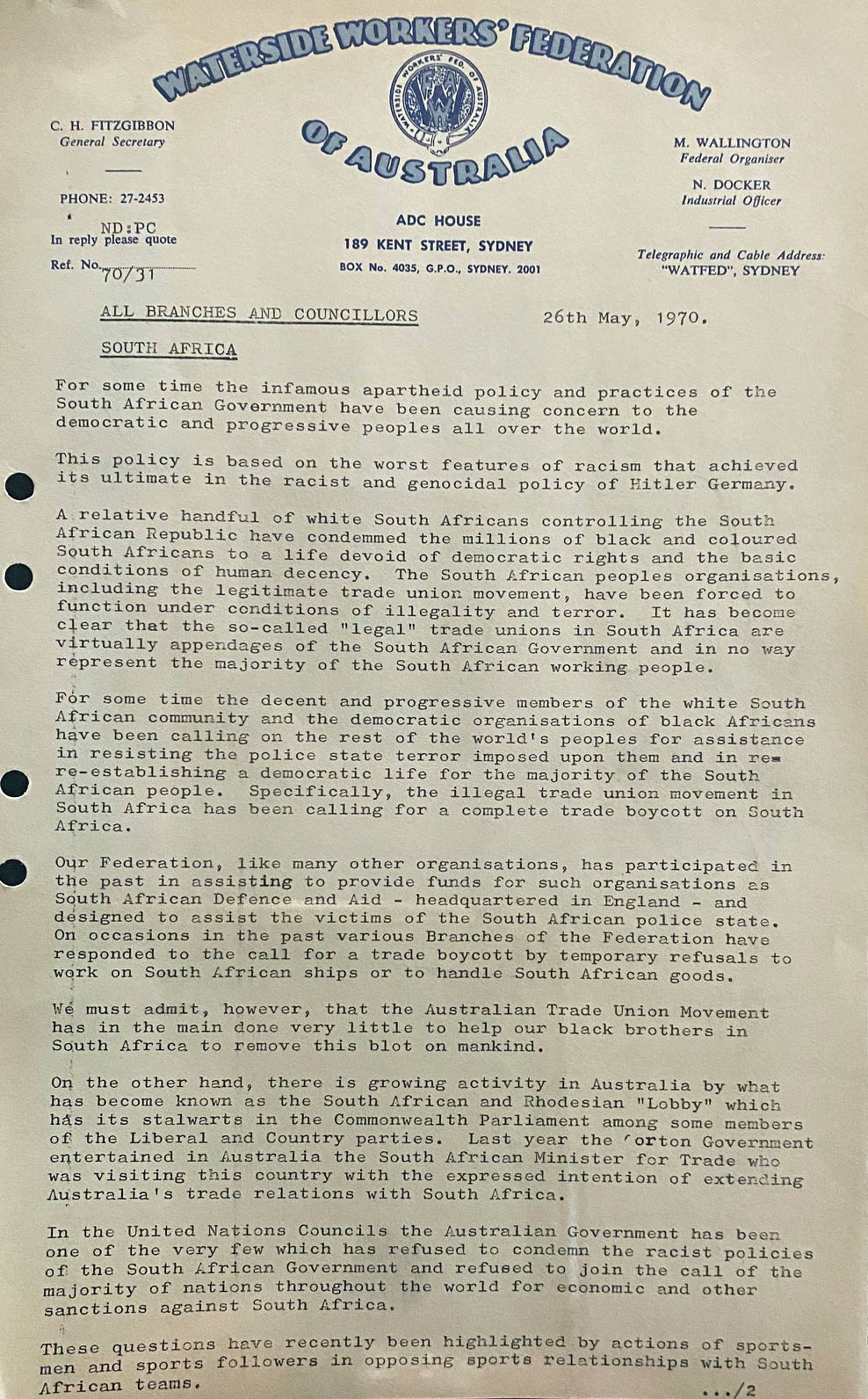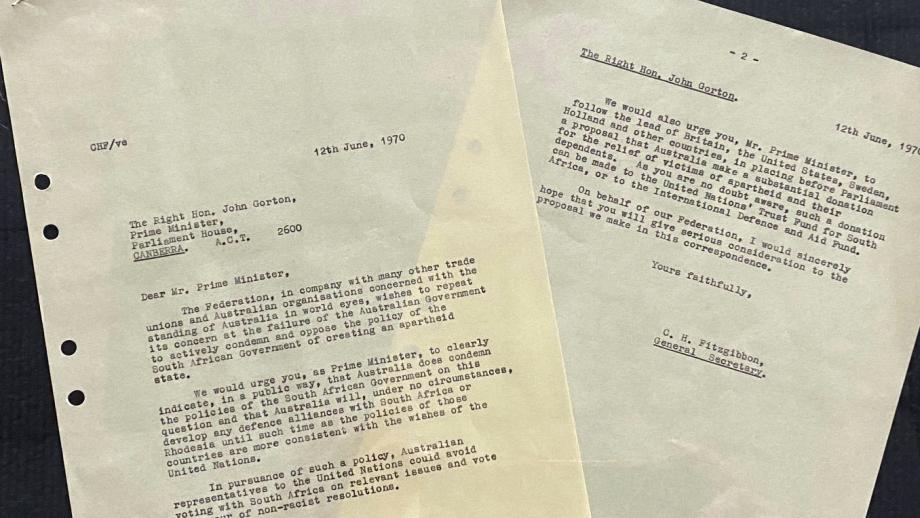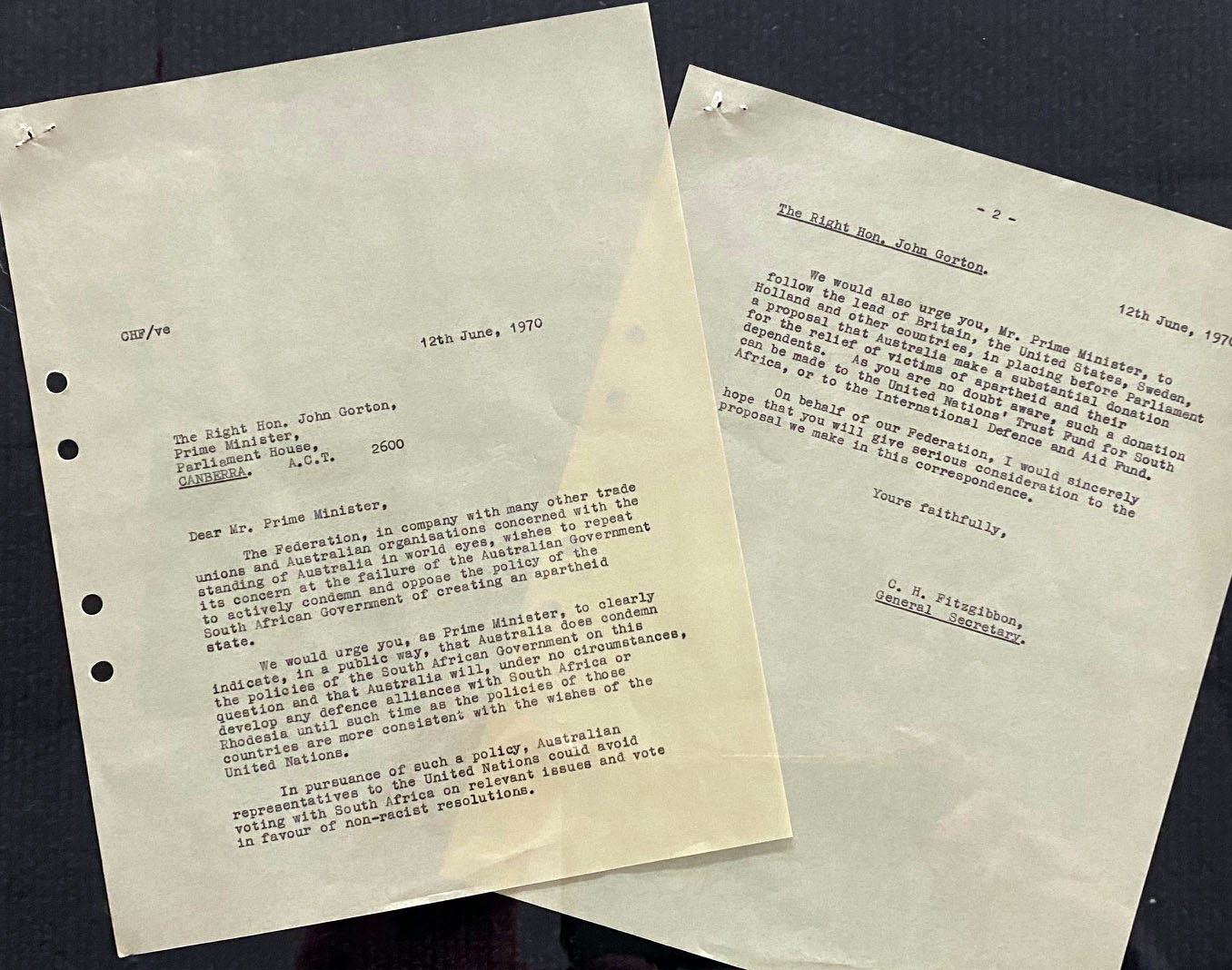The Campaign Against Apartheid
Trade unions were at the forefront of the campaign against apartheid in South Africa, with the Seamen’s Union of Australia and Waterside Workers’ Federation particularly active in the anti-apartheid movement. Both unions were active in introducing and maintaining embargoes of South African ships, despite attempts by the Menzies Government to punish trade unions that used sanctions. The unions stood strongly with the South African Council of Trade Unions and fully supported their urging for sanctions against apartheid.
Under the leadership of E. V. Elliott and Jim Healy, the SUA and WWF opposed apartheid and condemned racial oppression from the late 1940s onward, with the SUA at the forefront of implementing the United Nations arms embargo.
Both unions were also involved in attempts to implement an oil embargo, however this was thwarted by USA and UK leaders. Shipping unions across the world formed the Maritime Unions against Apartheid (MUAA) with the SUA’s Pat Geraghty and Wally Pritchard key founding members who helped mastermind the international oil embargo (McDonald & Jennings 2016). The SUA and WWF joined with the Danish Seamen's Union, the National Union of Seamen (UK) and the Transport and General Workers Union (UK) to become the fulcrum of the organising of the embargo (Maritime Union of Australia 2013).
Maritime workers around Australia also supported South Africans impacted by apartheid through the donation of medicine, clothing and food, which they shipped to South Africa (Maritime Union of Australia 2013).
Nelson Mandela made note of the support of maritime workers when, meeting with former SUA national secretary Pat Geraghty in 1990 after his release from prison, he spoke of the impact of the campaign on them behind the walls of Robben island: “We knew what you were doing and it was very important to peoples’ minds” (Maritime Union of Australia 2013).
References
Crumlin, P 2013, ITF President and MUA National Secretary Paddy Crumlin’s Statement on the Passing of Nelson Mandela, Maritime Union of Australia, <https://www.mua.org.au/news/itf-president-and-mua-national-secretary-paddy-crumlins-statement-passing-nelson-mandela>
McDonald, A & Jennings, P 2016, Australian Unions and the Fight Against Apartheid, Museum of Australian Democracy, <https://www.moadoph.gov.au/blog/australian-unions-and-the-fight-against-apartheid/>

